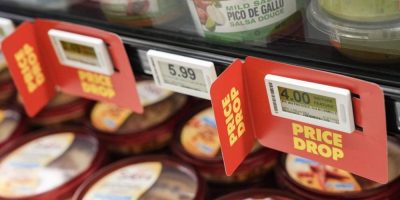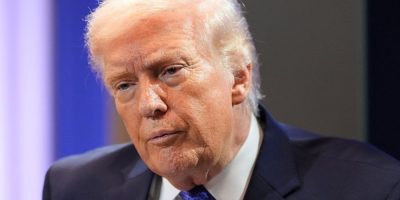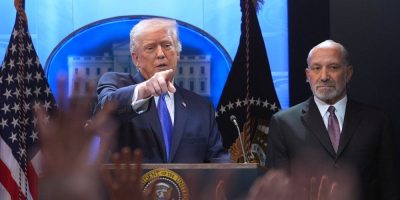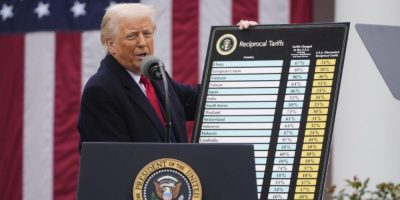A United States federal appeals court ruled on Friday that many of U.S President Donald Trump's tariffs are illegal — but it allowed for the levies to remain in place as the case makes its way to the Supreme Court.
The United States Court of Appeals for the Federal Circuit found that Trump's "Liberation Day" tariffs and his fentanyl-related duties exceeded the powers of the national security statute he used to impose the levies.
“It seems unlikely that Congress intended to ... grant the President unlimited authority to impose tariffs,” the judges wrote in a 7-4 ruling.
"The statute neither mentions tariffs (or any of its synonyms) nor has procedural safeguards that contain clear limits on the President’s power to impose tariffs."
The president in a social media post said "ALL TARIFFS ARE STILL IN EFFECT!" and called the court "highly partisan."
"If these Tariffs ever went away, it would be a total disaster for the Country," Trump said in a post soon after the decision came down. "It would make us financially weak, and we have to be strong."
The Liberty Justice Center, which represented some of the businesses fighting the duties, said in a post on social media that "the president cannot impose tariffs on his own."
Trump used the International Economic Emergency Powers Act of 1977 to hit nearly every country with tariffs. The act, usually referred to by the acronym IEEPA, is a national security statute that gives the U.S. president authority to control economic transactions after declaring an emergency.
IEEPA doesn't mention the word "tariff" and the U.S. Constitution gives power over taxes and tariffs to Congress.
The Center said "IEEPA does not give him unlimited, unilateral tariff authority."
"This ruling protects American businesses and consumers from the uncertainty and harm these unlawful tariffs have cause," it said.
White House spokesman Kush Desai said in a statement to The Canadian Press that “President Trump lawfully exercised the tariff powers granted to him by Congress to defend our national and economic security from foreign threats."
"The President’s tariffs remain in effect, and we look forward to ultimate victory on this matter," Desai said.
Trump has relied on tariffs to realign global trade since his return to the White House and the ruling could upend his plans.
The president has claimed that his steep tariffs on imports from around the world will accomplish many things: the restoration of American manufacturing, trade deals on the United States' terms and mountains of cash for the federal government.
Trump hit Canada with economywide duties in March after he declared an emergency at the northern border related to the flow of fentanyl. He partially paused levies a few days later for imports that comply with the Canada-U.S.-Mexico Agreement on trade.
Trump increased the tariffs on Canada to 35 per cent at the start of August, with the White House citing fentanyl and retaliatory tariffs as justification for the increase.
U.S. government data shows a minuscule volume of fentanyl is seized at the northern border.
Trump took his trade war to the world in April with duties on nearly every country, saying America's trade deficits amounted to a national emergency.
A handful of countries have made agreements with the Trump administration — including the United Kingdom, Japan, Vietnam, Indonesia and the block in the European Union — but significant tariffs remain in place even for those with so-called trade deals.
Canada-U.S. Trade Minister Dominic LeBlanc met with U.S. Commerce Secretary Howard Lutnick in Washington this week and said progress was made — but Canadian officials have cautioned it's unlikely they'll walk away without out duties.
Ottawa has said it's looking for a bilateral agreement to ease pressures from tariffs on steel, aluminum, copper and automobiles. Trump used different powers under the Trade Expansion Act of 1962 to enact those duties.
At least eight lawsuits are challenging the IEEPA tariffs.
The U.S. Court of International Trade ruled in May that Trump does not have the authority to wield tariffs on nearly every country using IEEPA. The Trump administration quickly appealed the lower court's ruling.
The United States Court of Appeals hearing combined two cases. One involves five American small businesses arguing specifically against Trump's worldwide tariffs, and the other came from 12 states pushing back on both the "Liberation Day" duties and the fentanyl-related tariffs.
The businesses and states argued that IEEPA doesn't give the president the power to impose any tariff he wants, on any nation, for any reason, for as long as he wants.
They also said that neither trade deficits nor the flow of fentanyl across the border with Canada amounted to an unusual and extraordinary threat.
Trump's lawyers told the court that the president is legally using powers granted to the executive branch by the Constitution and Congress.
It's expected the Trump administration will bring the case to America's highest court. White House Press Secretary Karoline Leavitt has said the Supreme Court should “put an end to this.”
If the tariffs are ultimately struck down the Trump administration has said it may have to refund some of the import taxes and revenue from tariffs now totals $159 billion, more than double what it was at the same point the year before.
Trump said in a previous social media post that it would be "1929 all over again, a GREAT DEPRESSION!"
— With files from The Associated Press
This report by The Canadian Press was first published Aug. 29, 2025.





